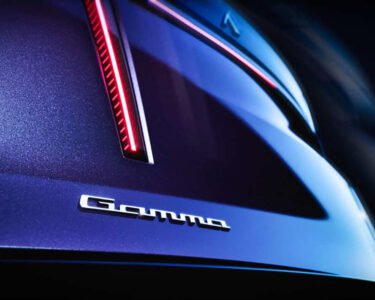In July 2024, new EU car registrations saw a modest increase (+0.2%) with mixed results across the region’s four major markets: Italy (+4.7%) and Spain (+3.4%) recorded moderate gains, while the French (-2.3%) and German (-2.1%) markets experienced declines.
Seven months into 2024, new car registrations increased by 3.9%, reaching more than 6.5 million units. This is the result of a low comparison base. The bloc’s largest markets all showed positive but modest performance, with Spain (+5.6%), Italy (+5.2%), Germany (+4.3%), and France (+2.2%) all recording growth.
New EU car registrations by power source
In July, battery-electric cars accounted for 12.1% of the EU car market, down from 13.5% the previous year. Hybrid-electric vehicles increased their market share, growing from 25.5% to 32%. The combined share of petrol and diesel cars fell to 46%, down from 50%.
Electric cars
In July 2024, registrations of battery-electric (BEV) cars declined by 10.8% to 102,705 units, with their total market share slipping to 12.1% from 13.5% a year before. Despite gains in Belgium (+44.2%), the Netherlands (+8.9%), and France (+1%), Germany’s decline (-36.8%) could not be offset. From January to July, 815,399 new battery-electric cars were registered, representing 12.5% of the market.
Plug-in hybrid car registrations saw a decline (-14.1%) last month, despite a 3.2% increase in Germany. In July, plug-in hybrids accounted for 6.8% of the total car market, down from 7.9% last year, with 57,679 units sold.
Hybrid-electric vehicles saw growth in July, with car registrations rising by 25.7% to 273,003 units. All four of the largest markets for this segment recorded double-digit gains: France (+47.4%), Spain (+31.5%), Germany (+22.4%), and Italy (+17.4%). This growth pushed the hybrid-electric market share to 32%, up from 25.5% in July 2023.
Petrol and diesel cars
In July 2024, petrol car sales dropped by 7%. The modest growth in key markets such as Italy (+3.8%) and Germany (+0.1%) could not counteract declines in France (‑22.6%) and Spain (-12.5%). Petrol cars now represent 33.4% of the market, down from 35.9% in July last year.
The diesel car market saw a decline of 10.1%, resulting in a 12.6% share of the market last July. While Germany experienced a moderate gain of 1.4%, substantial decreases were observed in other major markets like Italy (-24.6%), France (-23.9%), and Spain (-11.6%).
In July 2024, new EU car registrations saw a modest increase (+0.2%) with mixed results across the region’s four major markets: Italy (+4.7%) and Spain (+3.4%) recorded moderate gains, while the French (-2.3%) and German (-2.1%) markets experienced declines.
Downloads
Copyright notice
Reproduction of the content of this document is not permitted without the prior written consent of ACEA. Whenever reproduction is permitted, ACEA shall be referred to as source of the information. Quoting or referring to this document is permitted provided ACEA is referred to as the source of the information.
About ACEA
- The European Automobile Manufacturers’ Association (ACEA) represents the 15 major Europe-based car, van, truck and bus makers: BMW Group, DAF Trucks, Daimler Truck, Ferrari, Ford of Europe, Honda Motor Europe, Hyundai Motor Europe, Iveco Group, JLR, Mercedes-Benz, Nissan, Renault Group, Toyota Motor Europe, Volkswagen Group, and Volvo Group
- Visit www.acea.auto for more information about ACEA, and follow us on www.twitter.com/ACEA_auto or www.linkedin.com/company/ACEA/
- Contact: Pamela Kotzapasis, Publications Manager, pko@acea.auto
About the EU automobile industry
- 12.9 million Europeans work in the automotive sector
- 8.3% of all manufacturing jobs in the EU
- €392.2 billion in tax revenue for European governments
- €101.9 billion trade surplus for the European Union
- Over 7% of EU GDP generated by the auto industry
- €59.1 billion in R&D spending annually, 31% of EU total




